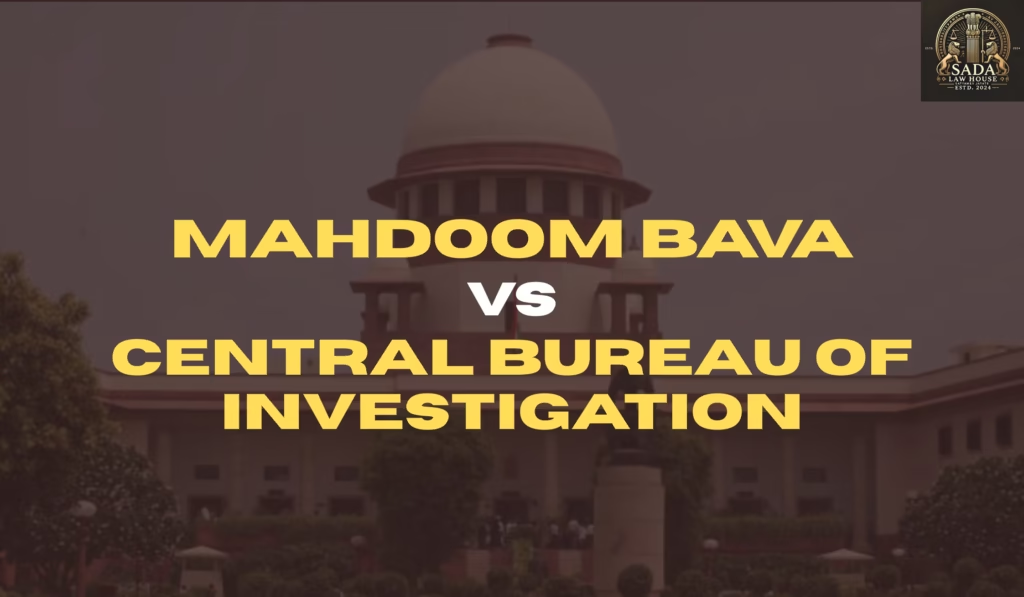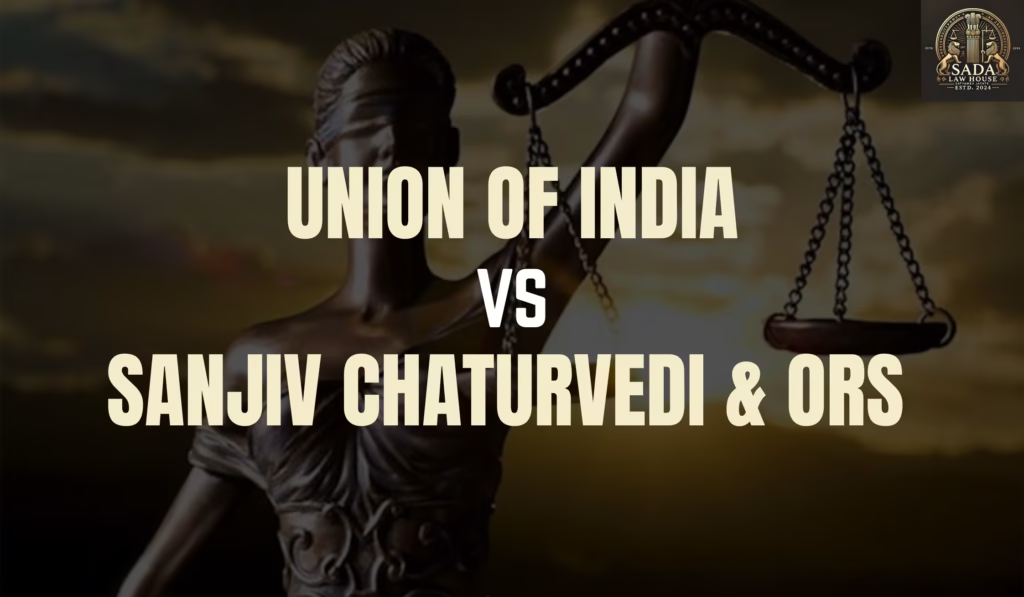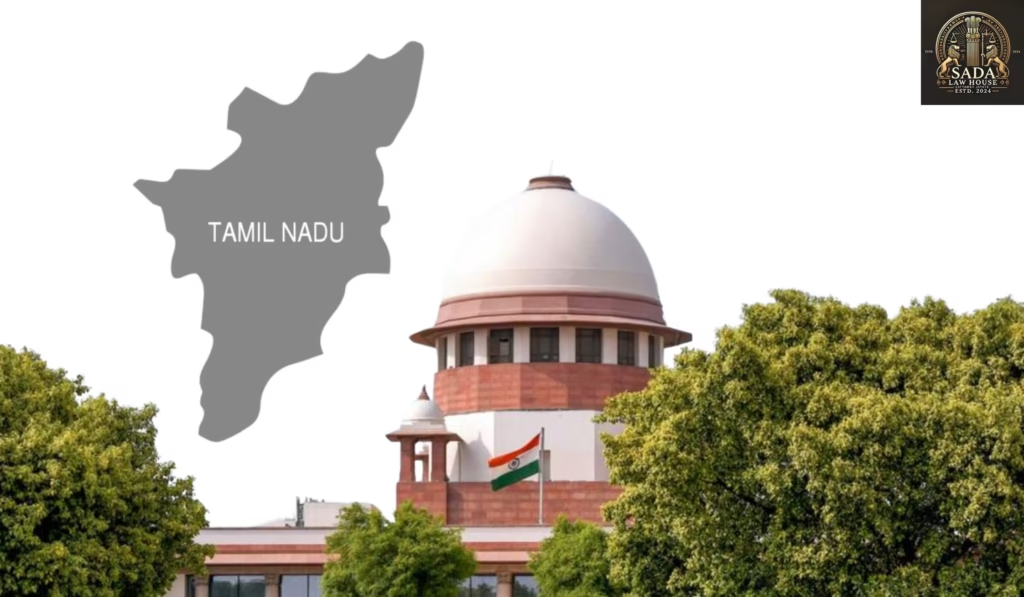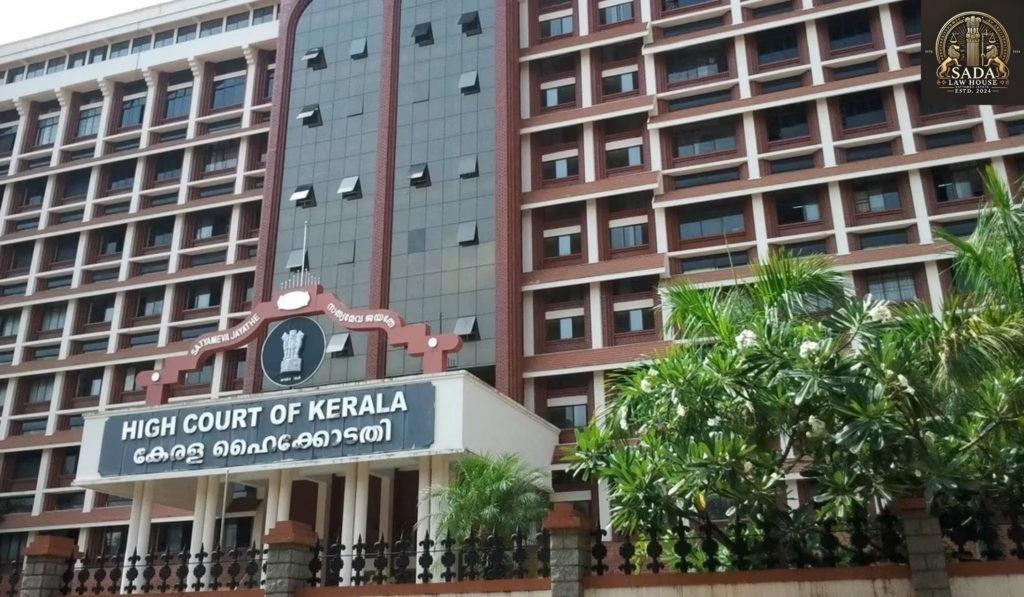Supreme Court Upholds Abolition of Orissa Administrative Tribunal: Union Government’s Power Affirmed
Trending Today Supreme Court Upholds Abolition of Orissa Administrative Tribunal: Union Government’s Power Affirmed Supreme Court Affirms Right to Anticipatory Bail Post-Charge-Sheet in Mahdoom Bava v. CBI (2023) Can High Courts Review CAT Orders from Outside Their Jurisdiction? Supreme Court Seeks Clarity in Sanjiv Chaturvedi Case Supreme Court Grants Interim Relief to Journalists in MP FIR Case, Directs Them to Seek High Court Protection Supreme Court Stays Madras HC Order Stopping NHAI Toll Collection on Madurai-Tuticorin Highway Supreme Court Refuses Urgent Hearing of Tamil Nadu’s Lawsuit Against Centre Over Rs 2291 Crore Education Funds Dispute Kerala High Court Upholds Widow’s Right to Marital Home Under Domestic Violence Act Bombay High Court Judge Cites Long Work Hours and Backlog for Delayed Judgment Upload in Landmark Property Dispute Case Supreme Court Landmark Ruling: Permanent Alimony and Home Ownership Rights for Divorced Women Supreme Court Landmark Alimony Verdict Redefines Dignity and Rights of Divorced Women in India Supreme Court Upholds Abolition of Orissa Administrative Tribunal: Union Government’s Power Affirmed REHA BHARGAV 11 June 2025 Supreme Court affirms the Union Government‘s power to abolish the Orissa Administrative Tribunal (OAT), ruling that the Odisha High Court can effectively handle transferred service matters. Explore the judgment, case facts, and its impact on administrative justice. Introduction to Orissa Administrative Tribunal Abolition Case The landmark case Orissa Administrative Tribunal Bar Association v. Union of India & Ors., decided on March 21, 2023, addresses the constitutional validity of abolishing the Orissa Administrative Tribunal (OAT). Established under the Administrative Tribunals Act, 1985, the OAT adjudicated service matters of Odisha state employees for over three decades. The Union Government, with Odisha’s concurrence, abolished the tribunal in 2019, transferring pending cases to the Orissa High Court. This decision triggered legal challenges based on concerns over access to justice, judicial independence, and the powers of the government under Section 21 of the General Clauses Act, 1897. Facts of the Case: Abolition of the Orissa Administrative Tribunal Establishment: OAT was formed in 1986 to resolve service disputes involving Odisha state government employees. Abolition Notification: In August 2019, the Union Government issued a notification abolishing OAT under Section 21 of the General Clauses Act. Case Transfer: All pending cases were transferred to the Orissa High Court. Challenge: The Orissa Administrative Tribunal Bar Association contested the abolition in the Supreme Court, citing potential negative impacts on justice delivery. Legal Issues Considered by the Supreme Court Was the Union Government legally empowered to abolish the OAT? The Court examined if the Union of India had the authority under the Administrative Tribunals Act, 1985 and General Clauses Act, 1897 to revoke the tribunal’s establishment. Did abolition violate access to justice or judicial independence? The case questioned whether shifting service matters to the High Court hindered litigants’ rights or compromised judicial effectiveness. Was transferring cases to the Orissa High Court constitutionally valid? The Court evaluated the High Court’s capacity to handle specialized service matters originally under OAT jurisdiction. Arguments from Both Sides Petitioners’ Arguments The abolition was arbitrary and affected thousands of state employees relying on OAT for speedy, cost-effective resolution. The Orissa High Court is overburdened and lacks tribunal specialization. Section 21 of the General Clauses Act should not revoke a statutory tribunal without explicit legislative authority. Respondents’ Arguments The Union Government acted within its legal rights to abolish OAT under Section 21. Many states do not have separate administrative tribunals, yet their High Courts effectively manage service cases. Policy decisions on tribunal restructuring are executive prerogatives and not liable to judicial interference unless unconstitutional or arbitrary. Supreme Court Judgment: Upholding the Abolition On March 21, 2023, the Supreme Court delivered a decisive ruling affirming the constitutionality of abolishing the Orissa Administrative Tribunal. The bench, led by Chief Justice D.Y. Chandrachud and Justice Hima Kohli, stated: Tribunals are statutory bodies without vested rights to exist permanently. Executive decisions to dissolve tribunals fall within legal policy discretion. The Orissa High Court is competent to handle service matters transferred from OAT. No violation of access to justice or judicial independence occurred by abolishing the tribunal. The Court dismissed the writ petition filed by the Orissa Administrative Tribunal Bar Association, validating the government’s action. Conclusion: Impact on Administrative Justice and Tribunal Restructuring This Supreme Court judgment underscores the Union Government’s power to restructure judicial forums, including abolishing state administrative tribunals like OAT, provided constitutional safeguards are maintained. It highlights that administrative tribunals are not permanent fixtures and their continuation depends on legislative and executive policies. The ruling reinforces that service matters can be effectively managed by High Courts, ensuring continued access to justice. It sets a significant precedent on the balance between executive discretion and judicial oversight in administrative justice reforms. Leave a Reply Cancel Reply Logged in as Sada Law. Edit your profile. Log out? Required fields are marked * Message* Case Laws Supreme Court Upholds Abolition of Orissa Administrative Tribunal: Union Government’s Power Affirmed Supreme Court Upholds Abolition of Orissa Administrative Tribunal: Union Government’s Power Affirmed Sada Law • June 11, 2025 • Case law • No Comments Supreme Court Affirms Right to Anticipatory Bail Post-Charge-Sheet in Mahdoom Bava v. CBI (2023) Supreme Court Affirms Right to Anticipatory Bail Post-Charge-Sheet in Mahdoom Bava v. CBI (2023) Sada Law • June 11, 2025 • Case law • No Comments Can High Courts Review CAT Orders from Outside Their Jurisdiction? Supreme Court Seeks Clarity in Sanjiv Chaturvedi Case Can High Courts Review CAT Orders from Outside Their Jurisdiction? Supreme Court Seeks Clarity in Sanjiv Chaturvedi Case Sada Law • June 11, 2025 • Case law • No Comments 1 2 3 … 5 Next »










